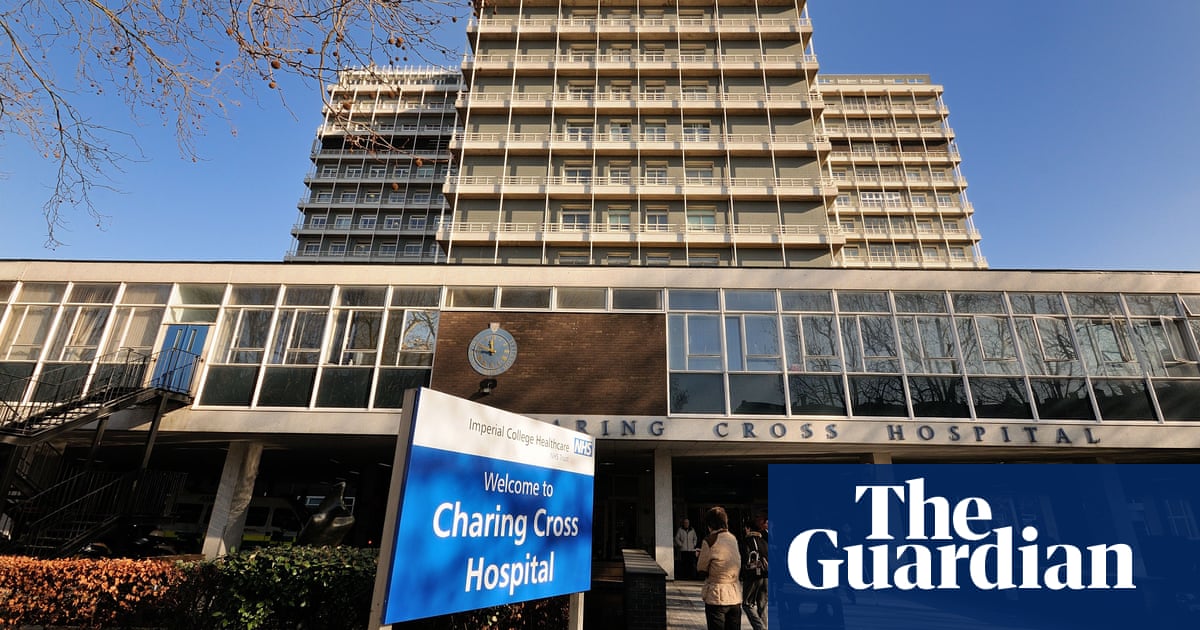
England’s chief inspector of hospitals had expressed concerns earlier this year that there was still a “cultural division” between midwives and doctors regarding “normal” and “interventional” approaches to childbirth.
In the wake of a devastating report into the maternity services at Shrewsbury and Telford hospitals (SaTH), which found that failures led to the deaths and harming of mothers and babies from 2000 to 2019, families who lost children told the Guardian they fear that a culture among some midwives of pushing for so-called “normal” births could be putting babies and mothers at risk.
In June, West Mercia police launched an investigation into the worst of the cases outlined in Thursday’s emerging findings report, which uncovered a lethal reluctance to conduct caesarean sections; a tendency to blame mothers for problems; a failure to handle complex cases; a lack of consultant oversight; and a “deeply worrying lack of kindness and compassion”.
In a January email seen by the Guardian, Ted Baker, the Care Quality Commission’s chief inspector of hospitals, said inspectors had witnessed “a cultural division between midwifery and obstetrics (or “normal” vs “interventional” approaches) and where we see it we call it out”. He added that more work creating “an effective multidisciplinary culture is needed”.
In a statement on Friday, Baker said some inspections had revealed how poor working relationships had contributed to poor risk management.
He said: “Tension among staff […] presents a risk to the safety of care. Where we have identified them, we have made clear that cultural issues such as this are not acceptable and must be addressed.”The Royal College of Midwives dropped a campaign for “normal births” in 2017. The number of C-sections has continued to increase year on year, according to the annual NHS Maternity Statistics for 2018-19.
Campaigners said the failings exposed at SaTH could still be happening in other maternity services, and that attitudes among some influential midwives continue to put women at risk. In September, Baker admitted to MPs that 38% of maternity services were deemed to require improvement for patient safety.
Rhiannon Davies, whose daughter Kate Stanton-Davies died under SaTH’s care soon after she was born in 2009, said the social media of some senior midwives displayed a “terrifying ideology” that “vaginal birth is the only way”.
Davies praised the report for having a broad scope and including the voices of families, and singled out the lead author, midwifery expert Donna Ockenden, whom she described as “open, accessible and very supportive”.
She hoped the light shone by the report would lead expectant mothers to “take back the ownership of their own pregnancy and birth”, but added: “But I don’t have hope that the system will change. I’m not giving up hope, but I don’t have it yet.”
Patient safety specialist James Titcombe, whose son Joshua Titcombe died nine days after being born in 2008 at Furness general hospital, said lessons, including “an overzealous pursuit of normal birth”, had still not been learnt from the 2015 Kirkup report into maternity services of the University Hospitals of Morecambe Bay NHS foundation trust.
The Royal Colleges did not promote a “natural” birth ethos, but “they don’t challenge it either”, he said.
Eddie Morris, president of the Royal College of Obstetricians and Gynaecologists, dismissed the idea that there was a conflict of approaches between midwives and obstetricians but said a shortage of midwives - the Royal College of Midwives’ (RCM) 2018 workforce report identified gaps in nine out of 10 obstetric units – meant vital joint training was sidelined.
“If you have pressurised staff doing extra shifts […] that’s when the cracks start showing,” he said. “We feel very strongly that without enough staff, you won’t have enough time for people to get the training that they need to prevent these horrendous cases from happening.”
In a statement on Thursday, the RCM chief executive, Gill Walton, emphasised the need for team working to improve safety: “I cannot emphasise enough the importance of respectful team working to build a supportive workplace culture.”
Dr Aidan Fowler, NHS patient safety director, said that NHS Improvement was already implementing the report’s recommendations: “We recognise the need for further improvements and we are committed to making sure all women and their babies receive the safest care.”
Hayley Matthews said she was relieved the report was providing some answers to questions she had been asking since 2015, when her son, Jack Burn, died 11 hours after he was born . Matthews said she had gone to hospital leaking fluid and had asked for a C-section, and believes that if she had been listened to her son would be alive today.
Continuing to push for change had taken an emotional toll on her and her partner, she said – but they wouldn’t give up. “We’ve got to keep going, not just for us, but for everybody else,” she said. “We owe it to Jack. We’re his voice - no one else can be.”












